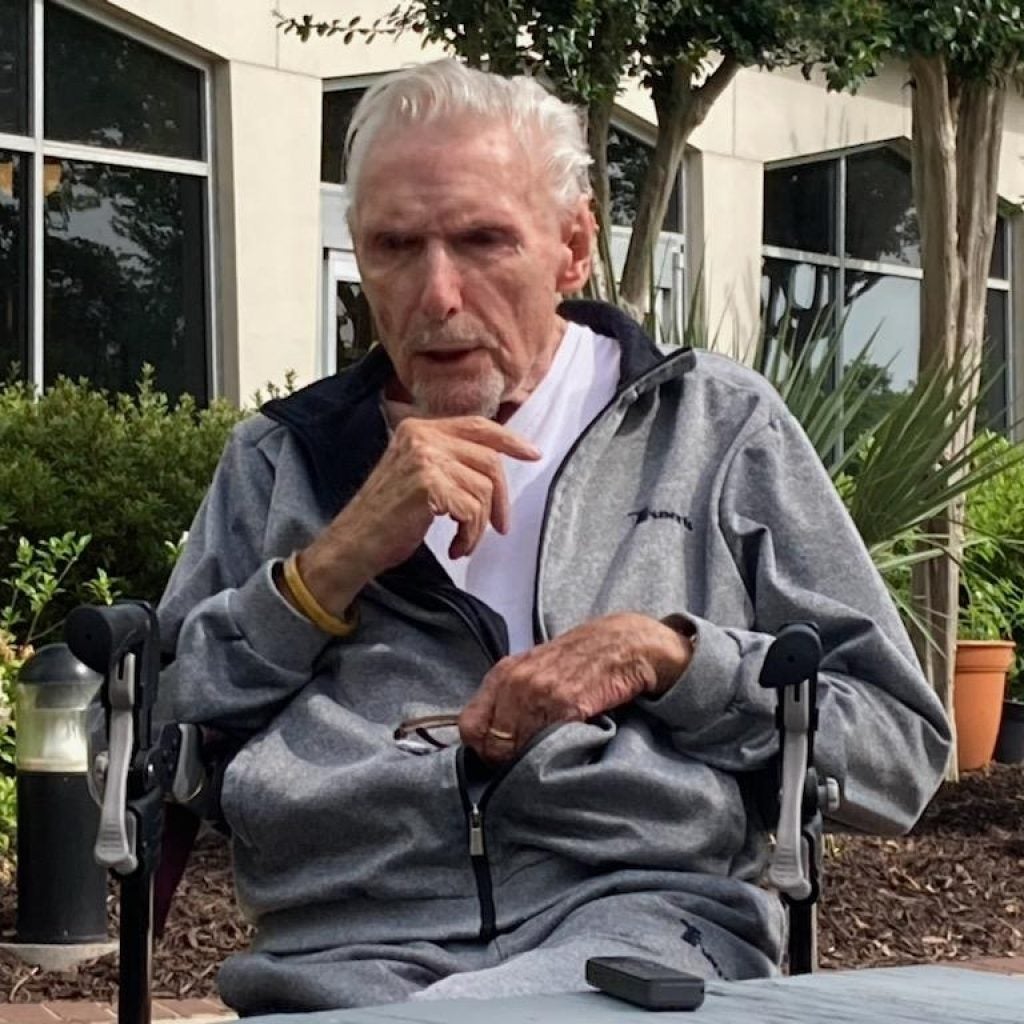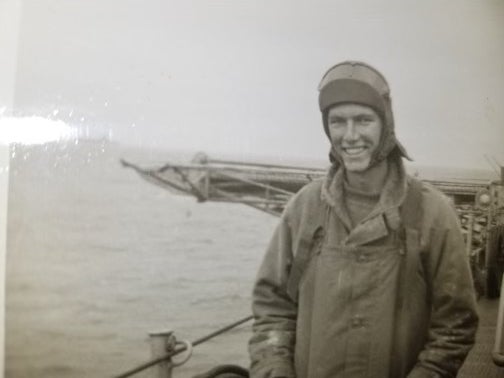Duane Seaborn was only 17 when he joined the U.S. Navy. He was enlisted until he turned 20.
One of his hardest days in the Navy was on an aircraft carrier in the North Atlantic supporting combat operations.
It was 10 p.m., he and other sailors were waiting for the planes to return. Suddenly there was a crash followed by the call, “all hands-on deck, report to your collision stations.”
“Out there was the front half of a destroyer, hanging off our starboard, her bow straight in the air, bodies falling into the cold sea. Over on our port bow. The after half broken, completely forgotten how many men died that night? Even if they had a lifejacket on and that cold sea. They died in minutes of hypothermia. But that was the hardest point. I still can’t really talk about it. When I saw the horror of death, hard to talk about it,” he said in a wavering voice. “I felt called to become a minister.”
“I just wanted to touch the lives especially of young men, to make them see that life was worth living. There was some meaning to it, other than getting weed and getting drunk and the usual stuff teenage boys do,” he said.
He pastored a church for a few years, but he was in the Army Reserves. He got called up Nov. 1, 1965.
Seaborn’s voice, strong one moment, dropping to a whisper a moment later when another memory flows over him while talking in the courtyard at the Georgia War Veterans Nursing Home.

Several times he said his experiences were hard to talk about it, but, on Memorial Day, he said talking about memories and those lost is important.
“I feel like I’m, pardon my English, but I feel like I’m a sailor pissing in the wind. You know, nobody listens. I’m writing this book about all this stuff. I just don’t know. But I do the best I can,” he said.
At 88, he’s certain about one thing he prefers to not hear during Memorial Day observances.
“They can avoid one thing, political talk. We do not need to hear politics. Focus on things like Pearl Harbor, the Alamo, if you want to go back to that in our past history. Focus on these veterans, they are the result of these battles over the centuries,” he said.
When his time comes and he is seeing those who passed before, family and military comrades, he knows exactly how he will greet them.
“I don’t know what to say other than glory hallelujah. Glory hallelujah, you believe jubilation. That’s going to be me,” he said.
Dana Lynn McIntyre is a general assignment reporter for The Augusta Press. Reach her at dana@theaugustapress.com









